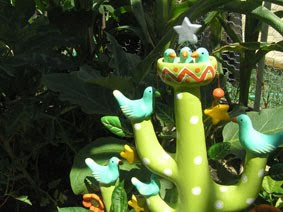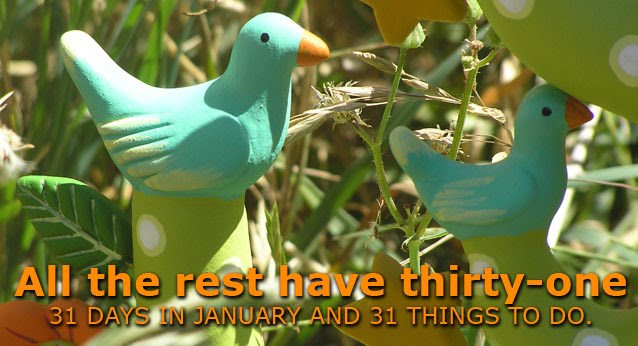We are Cass and John, a couple living together in Adelaide, South Australia. We are artists, writers and environmentalists.
Where we live, the weather has changed noticeably in the last ten years, and in the last 5, the changes have been dramatic. We've known about climate change for years, but suddenly it's too hot here, not just summer fun heat, but regular heatwaves that burn our gardens, and trap us inside for days at a time. There's also less water than there used to be.
There's also the knowledge that this is a global situation and that for most people it's going to be a lot worse than fried lettuce, buckets in the shower and aircon guilt.

Our little town-city, on the plain between the hills and the sea.
At the moment we're trying to balance the fun and excitement of making a house and garden together with our attempts to come to grips with what can regularly feel like an overwhelming crisis. (Just a nod here to Peak Oil, the cousin of climate change in terms of scariness and the potential for generating sustainable behaviour.)
If this introduction seems to be seesawing between cutesy optimism, and genuine freaked-out grief, it's because that's how we're feeling. This blog is our attempt to marry the hope we have for the future with the knowledge that this future is being shaped right now and that our current activities are a part of it.
We think it starts at home, so the fun times around the house are part of our active local response to the crisis.
The 31 Days thing came about through a neighbourhood group we joined last year that's part of a global movement to build resilient communities. It's very similar in concept to groups that are part of the Transition Towns movement; both are about sharing skills and knowledge, supporting local businesses and communities, reducing our dependence on energy and our ecological footprint, all on a very local scale.
We meet once a month, and at the December meeting we decided that in January we'd all take a challenge to do something sustainable.
Now it's the first of January 2010 and we have a list of 31 things we're planning to do this month.
So this will be a very short, very frequently updated blog.
Please feel free to comment!
Cass Flanagan and John Willanski


Hey Janiece here. Well done, hope you tick as many off as you can. Just re the compost screw - Andy is the compost man here, and he has one and he swears by it, best 20-odd bucks ever spent.
ReplyDeleteHaha at first I thought you were listing them in order of the days you were going to do them, and I thought I could play a trick and ring Harry and say... "I just had a premonition... you will be rung by Cassie on the 13th of Jan about rotting wood".... but it seems its in a random order, seeing you've done a couple near the end of the list...
ReplyDeleteOooh nice. If you're in Adelaide, the best source for eggs I've ever found is along the road from Coromandel through Ironbank to Upper Sturt in the hills: a vast number of people along there grow chooks and you can pick up cartons of eggs out of eskies along the side of the road for like $3 to $5 - and they're fabulous. The only thing to be careful of is that sometimes, depending on the weather, the chooks don't lay. BUT you can usually pick up something else, like zucchinis, fruit of various kinds, etc etc etc.
ReplyDelete@ Leticia
ReplyDeleteChooks are always seasonal unless they are in sheds and the lights are turned on and off to make them think that they are in the summer all the time... bad for chooks.. and maybe bad for people to eat eggs constantly... but good for the capitalists.
Chooks go "off the lay" when the daylight gets short.
Loved reading your posts. Pics are a great addition. Thanks! Kas from Bliss Cafe. PS> Cant wait to see your works in Feb/March during Fringe.
ReplyDeleteCheck table S5 page vii in:
ReplyDeletehttp://www.energyrating.gov.au/library/pubs/2003-endusereport-volume1.pdf
Producing a kilo of beef
generates 51.7 kg of CO2. To transport it, look
at:
http://www.ceres.org.au/sites/default/files/CERES_Report_%20Food_Miles_in_Australia_March08.pdf
Transporting that kg of beef 300 km generates
66 grams of CO2.
The implication? A vegan can eat food air freighted
from Spain and have a lower carbon footprint than
someone raising cattle in their back yard and
killing them in the garage. So if you want
to reduce your footprint, the HUGE thing is
what you eat (no dairy, no meat) and the TINY thing
is where your food is produced.